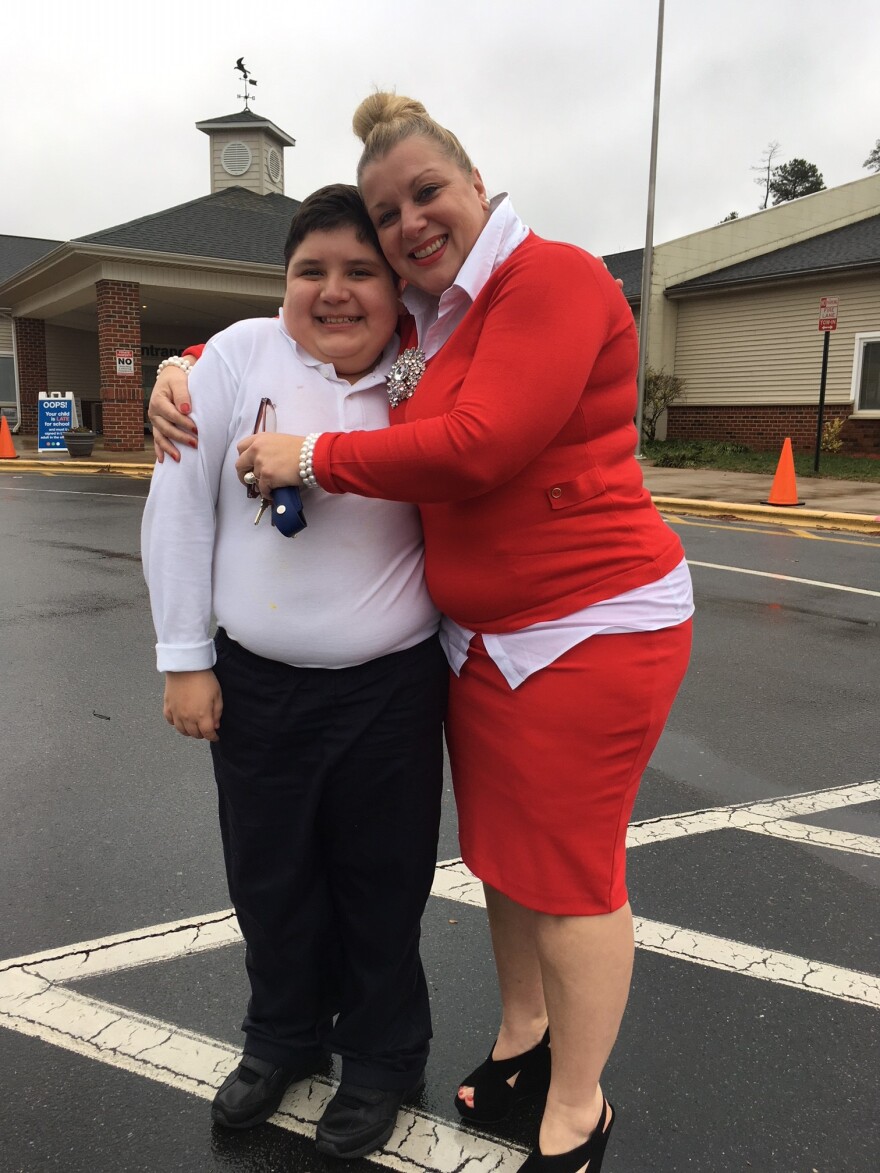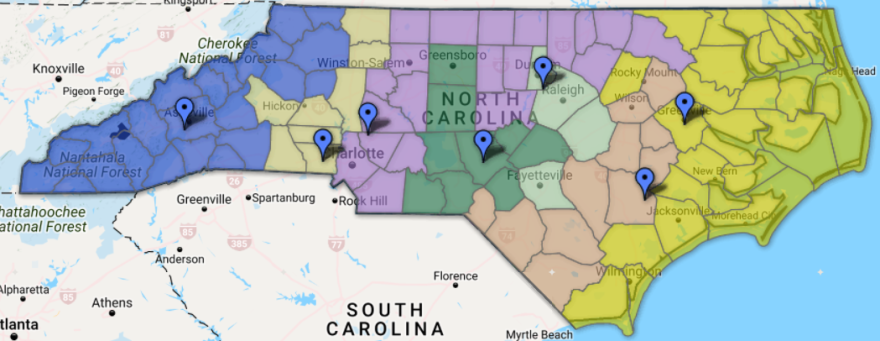The recent scandal at Cardinal Innovations Healthcare angered many individuals with intellectual and developmental disabilities waiting for services. The state took control of Cardinal in November because the behavioral healthcare organization spent excessively on salaries, parties and severance packages. Across the state there are almost as many people with intellectual and developmental disabilities waiting to get a complete array of home and community services as are currently getting them. For families it can last years, be frustrating and feel unfair.
Tonya Burtrum and her 11 year old son Christian are very close.
“He’s my side kick he’s always on my right hip,” she said.
Christian contracted meningitis as a baby. Tonya said she doesn’t work so she can take care of him. They live off of disability payments. Tonya said Christian has permanent brain damage, seizures, memory problems, as well as other developmental issues. Still he dreams.
“I want to be an opera singer,” he said confidently.
He’s been on the waiting list to get home and community services through Medicaid for nine years, said

Tonya. She lives in the Charlotte area so she’s on Cardinal Innovations Healthcare’s waiting list. Because of privacy laws Cardinal couldn’t discuss the details of his case.
Cardinal and each of the state's behavioral healthcare organizations keep their own waiting list. All told, as of early January, there were more than 11,700 people waiting to get services throughout the whole state. Only about a thousand more actually get the full array of services.
What keeps Tonya up at night is what happens down the road if he’s still waiting when she dies.
“How do you leave them? Who takes care of them? You live with that every day,” said Burtrum. “That’s the scariest.”
North Carolina, like many other states, runs its own program to serve people like Christian with federal Medicaid funds. The advantage to this system is it gives states flexibility and in theory efficiencies in the home and community based services they offer. The downside is that there is a limited amount of funding. So not everyone gets these services.
Musumeci with the Kaiser Family Foundation, a health research organization, said these services aren’t strictly medical.
“Self-care, like bathing, dressing, eating,” she said. “Medicaid is historically the primary source of funding for those services that people need to live safely and independently in the community.”
People can be on the waiting list for between five to ten years, according to the North Carolina Department of Health and Human Services.
“My life would be totally different,” said Suzanne Grant. “I’d be a lot calmer.”
Grant has been waiting for four years to get services for her nephew Xavier Butler. That’s how long she’s been caring for him since his parents died in West Virginia. Because he lived in another state, he went to the back of the line when he moved to North Carolina.
Butler is 8 years old, has autism and doesn’t talk. Instead, he grunts and cries. Over time, Grant says, she has figured out what he’s communicating. Other things have been more difficult. Grant is 51 years old and a small woman. At less than 5 feet tall, she said it’s hard to restrain Butler when he gets violent. She said one time he punched her in the eye during a fit of rage.
Grant said another time, “I was trying to get his jacket on to go to school and I don’t know how it happened. It happened so fast and he just grabbed both of my hands and pulled me to the floor because he didn’t want to put on a jacket because of the color.”
Grant is concerned she may have to put him in a residential living facility.
“I need my load to be a little lighter,” Grant said, “I get so angry and I cry so much.”
That frustration and confusion is what John Nash hears a lot. He’s director of The Arc of North Carolina, an advocacy organizations for people with intellectual and developmental disabilities.
“We live in this environment every single day and it’s confusing for us,” Nash said.
The only way a spot opens up is if someone moves, dies or voluntarily leaves the program and that doesn’t happen much. Or if the state opens up more slots. This year the North Carolina General Assembly funded 400 more slots for people to get off the waiting list. The slots are divided among different behavioral healthcare organizations throughout the state. And there is no transferring to different waiting lists, so once you’re on one, Nash said, you are stuck.
“I know one woman who lives and wants to move to a different county and can’t. Because if she moves she moves into a different catchment area and she has to start all over,” Nash said. “And that makes no sense.”
And the confusion, he said, can make people in the intellectual and developmental disability community suspicious of the system. The recent scandal at Cardinal involving excessive executive pay and parties has added to that suspicion. But Nash said there’s a positive side to the scandal: It’s renewed attention to the thousands of people waiting for services – and that’s resulted in more attention and questions from concerned lawmakers.

